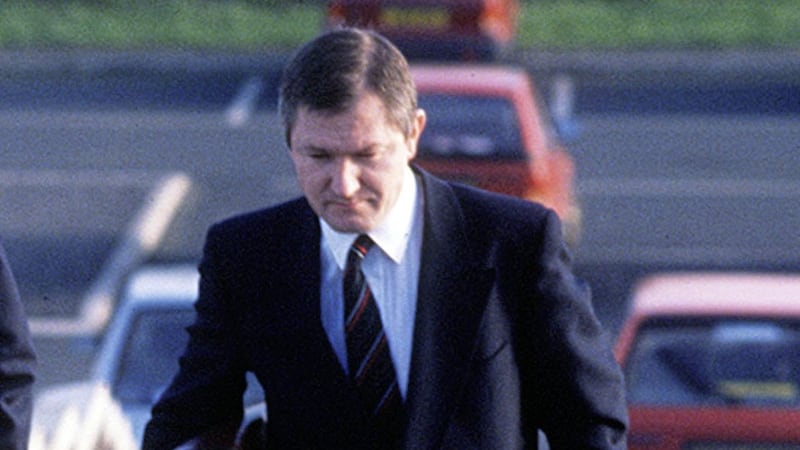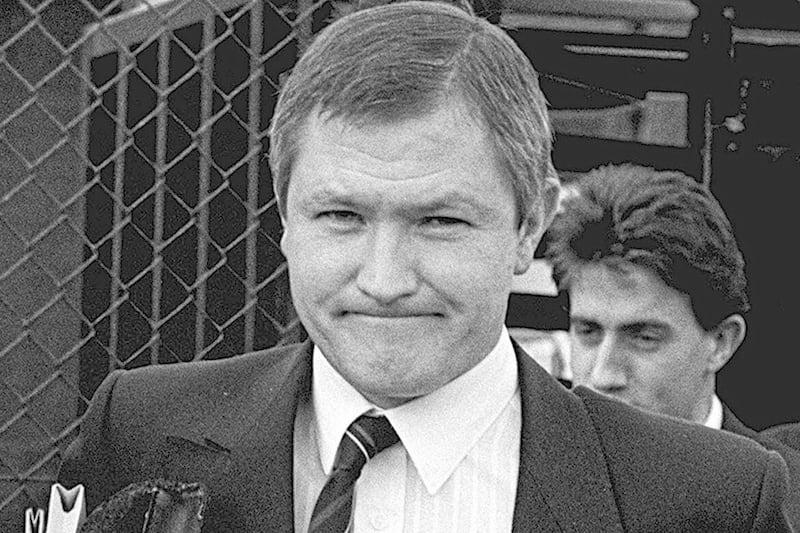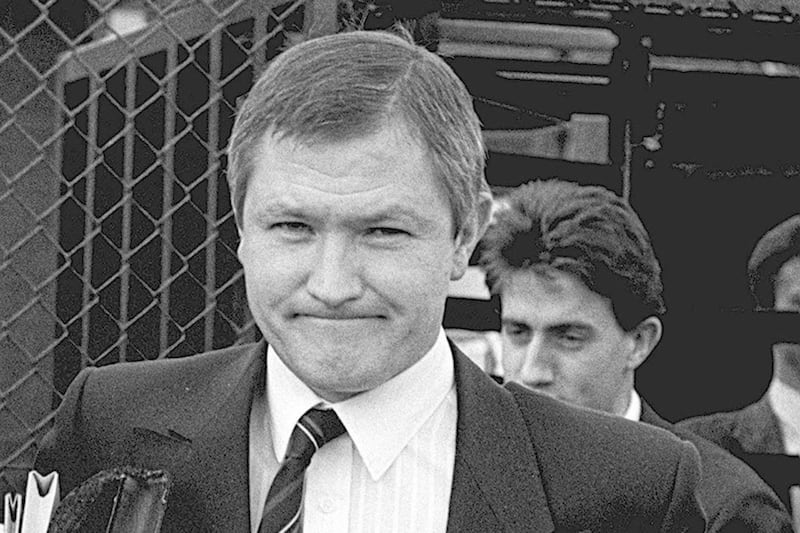This has been a very difficult week for so many people.
Discussions about legacy and loss don't just impact the family at the centre of the case making headlines, but all those suffering from the grief of our awful conflict, that has in the majority of cases been left unresolved.
The murder of Pat Finucane has become one of the most high profile events of the Troubles, the solicitor's name recognised globally.
The collusion involved fully evidenced by successive investigations into the 1989 murder.
In 2012, Prime Minister David Cameron issued an apology for the "shocking levels of collusion" in the case.
For the Finucane family this is about the murder of a husband and father, but it goes much further and right to the very heart of our conflict.
If loyalist and republican groups were as heavily infiltrated as is now believed, then who was pulling the strings, why were so many lives lost and could it all have been stopped earlier?
Former Metropolitan Police commissioner Sir John Stevens spent 14 years investigating security force collusion with loyalist paramilitaries.
He once told a Commons select committee that of the 210 people arrested and questioned by his team, 203 were agents of the state.
Which raises the question, who were they actually informing on given they were all protected to a degree?
Only a full public inquiry can compel government witnesses who have until now escaped scrutiny and give the Finucane family the answers they need to help them fully understand the murder of their loved one.
They may well have to wait on a change of administration before anyone is willing to stand up to the spooks and throw open the files. The current Conservative government seems intent on closing down access to legacy, with new legislation and limited budgets for legacy branches of the PSNI, ombudsman and legal aid.
What does that all mean for those left hurting from the past?
If a family with as much influence as the Finucanes, who have the support of both the Irish government and powerful voices in America can't get justice, what hope is there for others?
All have been failed by goverments, both Labour and Conservative, since the Good Friday Agreement.
Opportunities to bring about change, such as the proposals by the the Consultative Group on the Past, also known as the Eames/Bradley report, were scuppered at the time.
But does the approach suggested by Denis Bradley and Dr Robin Eames need revisited and updated?
In the past the loudest, and at times the most destructive voices, have been given precedent over the hundreds of people who suffer much of the time in silence.
During the pandemic social media has become a big part of many lives.
But I'm now left wondering what does it really bring to the political discourse in such a divided place?
The algorithms seem to connect people with extremist views, creating a strange dynamic that would be far from common in the world outside of online chat.
An unhealthy place for the vulnerable, often exploited by those with an agenda.
The most outspoken victims forming alliances with the most unrepentant perpetrators, willing bedfellows as long as they can find a common enemy, regardless of the damage this does to others who are hurting.
I like to think this toxic echo chamber is not reflective of our society in general. That most people are kinder, more understanding and empathetic and yet those angry voices are often the only ones heard.
I was contacted by a number of victims this week, people who I've come to know well through my work and who have suffered and experienced more than any human should ever have to.
People who have witnessed acts too horrible to even contemplate, who have listened, watched and read as victims have been pitted against victims in some grotesque, gladiatorial arena of public opinion.
Who have listened as politicians have used words without the responsibility of consequence that should come with holding high public office.
They deserve better, we all deserve better.








